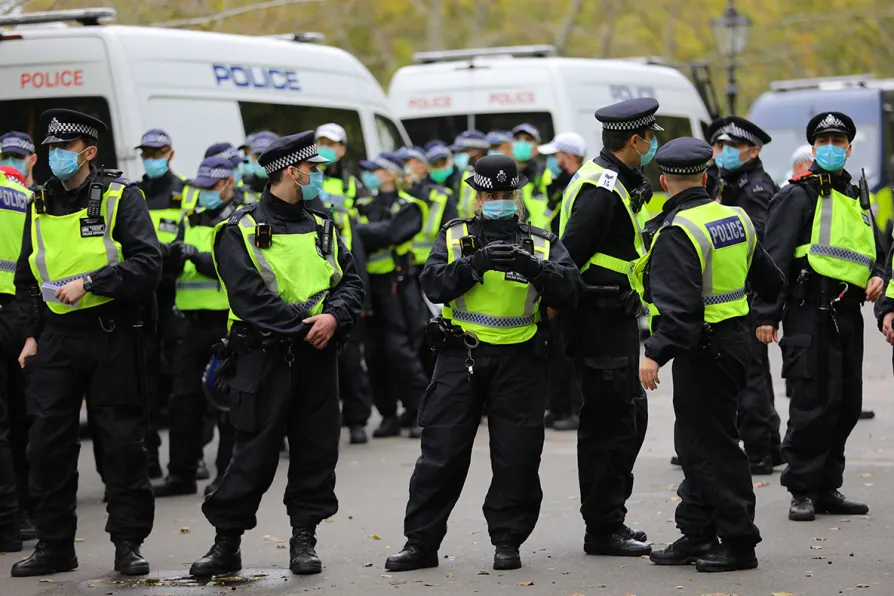Police use of force surged 12.5% at height of lockdown despite fall in crime
Human rights group Liberty warns emergency Covid-19 powers have ‘exacerbated unfair, excessive and discriminatory policing’

 Police officers in London
Police officers in London
by Bethany Rielly
POLICE use of force surged by 12.5 per cent during the height of the lockdown compared to the previous three months despite a fall in crime, a civil liberties group has said.
Campaigners have said that the “alarming” surge in police use of force is the result of emergency Covid-19 powers which they claim have “exacerbated unfair, excessive and discriminatory policing.”
Liberty Investigates sent freedom of information requests to 32 constabularies.
Similar stories

The unnecessarily violent police intervention at a Quaker place of worship is a PR disaster and will only serve to deepen the chasm between them and the public. SYMON HILL reports













